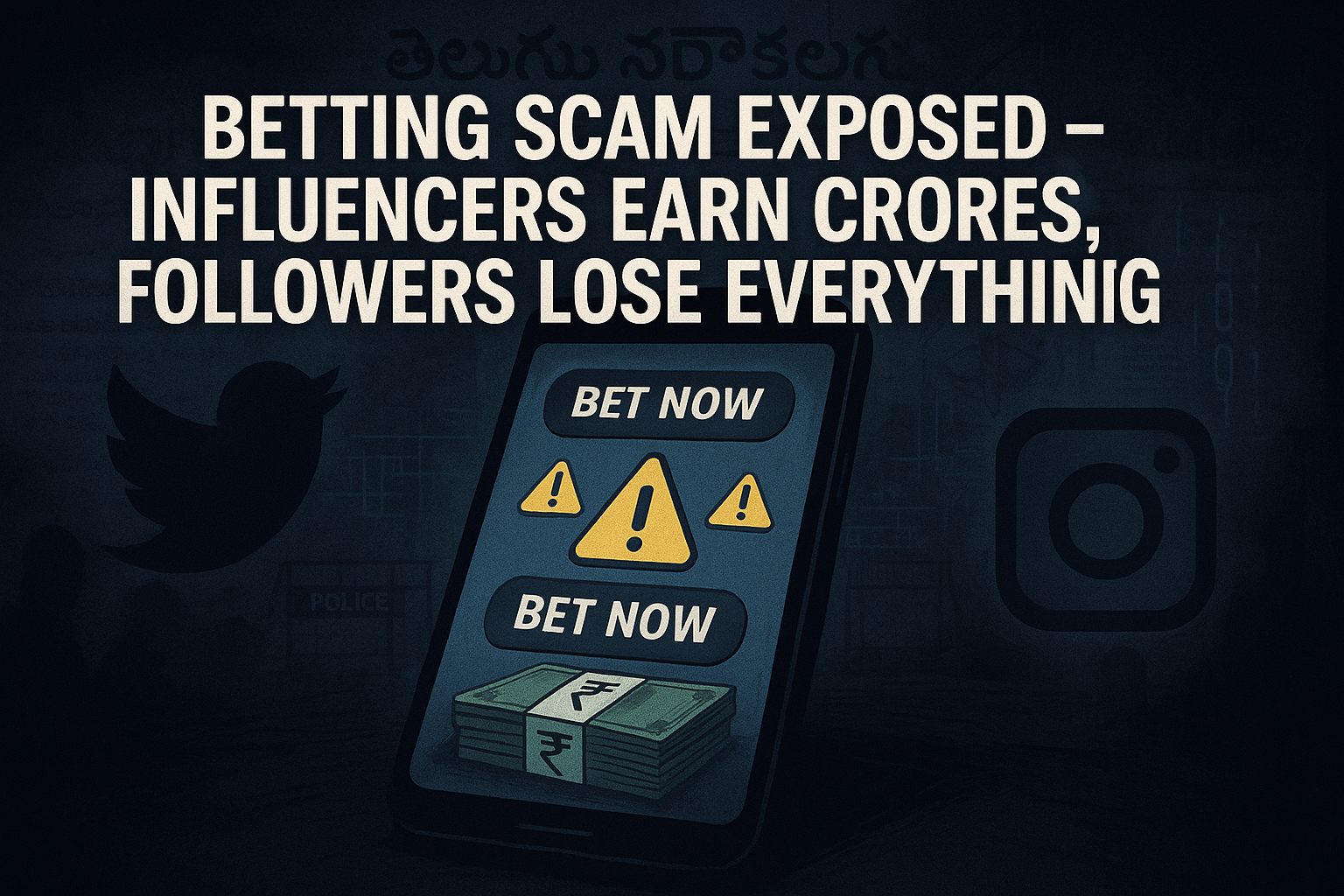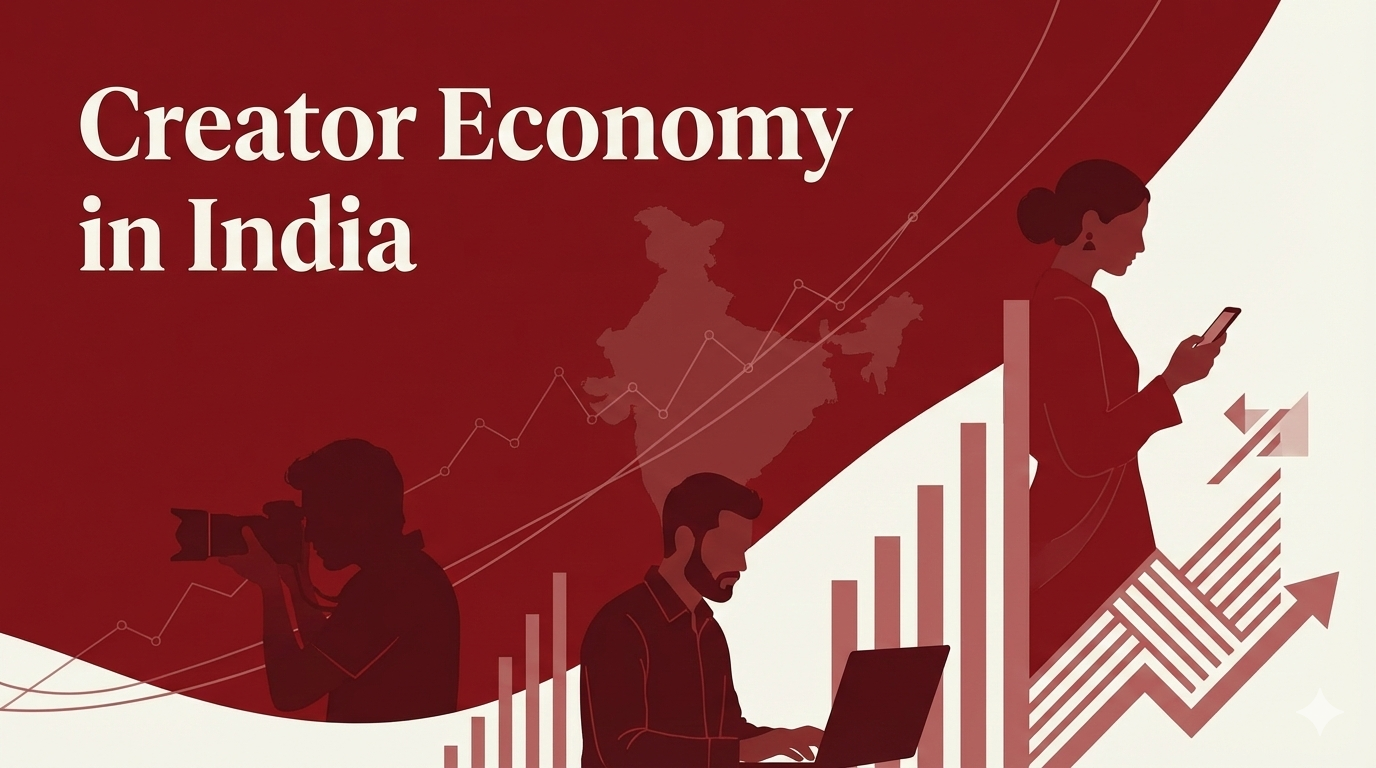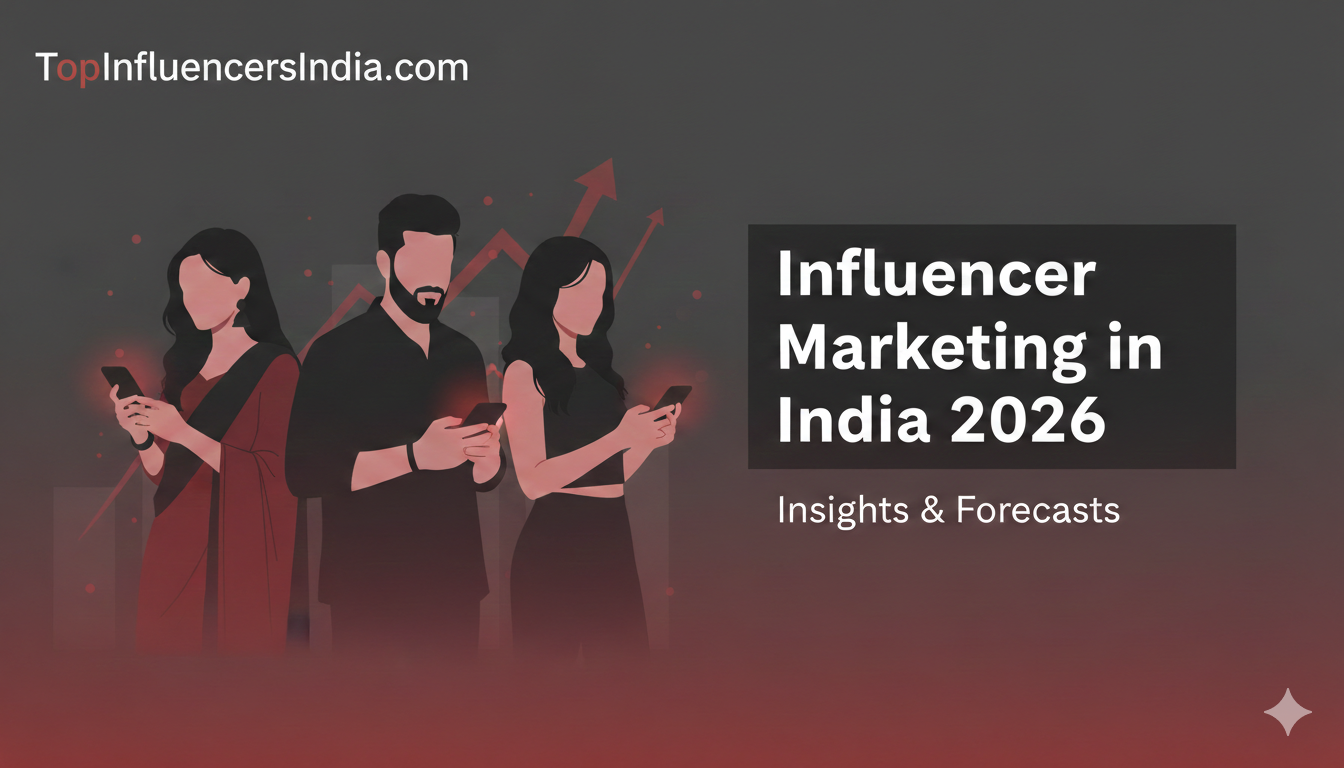The dark side of influencer marketing has emerged in Hyderabad and surrounding Telugu states. Over the past few weeks, cybercrime units have arrested multiple influencers and public figures for promoting illegal betting apps earning crores of rupees while pushing punters into devastating financial losses. The unfolding “Operation Sindoor” has revealed a serious threat to youth and digital trust in the region.
The Modus Operandi: Influencers as Betting Ambassadors
A recent sting operation uncovered how influencers in Andhra Pradesh and Telangana were paid handsome monthly fees and hefty commissions to promote betting platforms. They enticed followers with supposed guaranteed wins, often through Telegram groups, Instagram reels, or tip-based messaging.
One case involves Valluri Srinivasa Rao, who pocketed Rs 1 crore over five years and used his earnings to launch a Telugu film and open a shop all after receiving about Rs 3 lakh each month from betting platforms. He distributed supposed match-fixing tips that entranced followers into placing bets through unregulated overseas apps.
Similarly, influencer P Deepak, a software engineer with 80,000 Telegram followers, reportedly earned Rs 55 lakh by promoting betting channels. Another accused, Ch Naga Rakesh, amassed Rs 1.7 crore since 2020 through three Telegram channels pushing betting.
Underground Betting Network Busted
Earlier this month, Cyberabad Cybercrime officials took down a syndicate that made over Rs 2.75 crore in illegal commissions. Four Telegram influencers were arrested in June after victim testimonies revealed they were coaxed into “fixed-match” scams through exclusive Telegram groups. These groups funneled transactions to offshore betting websites, rewarding early winners to create trust and then freezing large withdrawals.
Police noted that around 10 unlicensed betting websites have since been blocked and that mule accounts helped the syndicate launder money. The figures are staggering, and the scheme targeted particularly young, impressionable users.
The Human Toll: Devastating Losses and Broken Lives
The real damage is personal and profound:
- A student from Miyapur risked ₹50 lakh and tragically lost a friend to suicide, drawn into high-stakes betting by influencer recommendations.
- Other victims lost lakhs after chasing “guaranteed tips” that never materialized.
Cybercrime authorities are now investigating the potential mental health fallout and seeking justice for affected families.
Influencer Marketing Gone Wrong
These incidents sharply demonstrate what happens when influencers trade credibility for cash:
- High-risk endorsements – when pay is high, ethics falter.
- Lack of transparency – followers are misled into believing in “sure-shot” tips.
- Minimal regulation – Telegram, Instagram, and apps remain unmonitored for illicit promotions.
- Youth vulnerability – young followers saw easy money as catch-all solutions, risking life savings—or worse.
This kind of influence isn’t about brand-building it’s exploitation.
What Authorities Are Doing
Law enforcement is acting fast, but there’s more to do:
- Police are filing charges under the Telangana Gaming Act, Bharatiya Nyaya Sanhita, and IT Act.
- Multiple betting sites are already blocked; more action on the platform front is underway .
- Influencer wallets, bank accounts, and offshore links are under intense scrutiny especially mule account networks.
The message: If you’re paid to promote betting, you’re fair game.
What Brands and Creators Must Learn
- Ethical responsibility isn’t optional – promotional deals must align with honest value.
- Due diligence matters – creators, remember to vet brands and offers before endorsement.
- Transparent sponsorship – clearly label paid content as such; promote only legal services.
- Platform duty – Instagram, Telegram, and X must better identify and ban gambling promotions.
Brands cannot sacrifice long-term credibility for quick cash public trust is not negotiable.
Broader Implications for Influencer Marketing
- Trust erosion: Users are now more skeptical of any influencer especially in sensitive categories like finance, wellness, or tech.
- Regulatory tightening: Expect guidelines and legal notices from bodies like MIB or TRAI against unregulated sponsorships.
- Reputation risk: Tens of thousands of followers can vanish overnight when influencers promote shady products.
- Need for influencer transparency: Brands promoting mental health, finance, or education must stay above reproach or face backlash.
Final Word
The Telugu betting influencer scandal is a stark reminder that influence is a privilege with serious responsibility. As digital marketing evolves, the bar for ethics and accountability must rise higher than ever.
For followers, it’s a caution: question before trusting. For influencers, it’s a mandate: promote responsibly or pay dearly.
FAQs
Q1. How much money did influencers earn from betting scams?
Between Rs 55 lakh and Rs 1.7 crore each, according to police reports.
Q2. How were these bets promoted?
Through strategic influencer reels and Telegram “fixed-match” groups, with commissions based on user losses.
Q3. What legal charges apply?
Influencers face investigations under the Telangana Gaming Act, IT Act, and criminal conspiracy laws.
Q4. What should followers watch out for?
Avoid unverified “guaranteed” earning tips, check for disclaimers, and report suspicious pages to cybercrime agencies.
Q5. What can platforms do?
They should proactively block gambling promotions and label high-risk content clearly, protecting vulnerable users.









